Training, coaching and mentoring are words that often get used interchangeably. I’ve done it myself. But the more I inhabit these roles in my professional life and reflect on my own experiences as a student or mentee, the more I come to understand why it’s important to get the distinctions right. Sure, there are plenty of overlaps, but the skills, expectations, and relationships involved in each are fundamentally unique.
Training closely resembles the traditional teaching experience – a formal, structured set-up with a curriculum or syllabus, usually some kind of assignment, and a standardised way of testing the candidates. Put simply, the trainer is someone who knows a lot about a subject and is passing that information on to someone who knows less, generally in an instructional format. How effectively they do that, is up to the skill of the particular trainer. And it really is a skill. Just knowing a lot isn’t good enough. If you can’t communicate to the student or trainee, then what’s the point?
It makes me think of an expression I’ve always disliked: “those who can’t do, teach”. It’s such a belittling way to talk about the immense expertise required for high quality teaching or training. Most of us will know this because we have been lucky enough to have had at least one great teaching experience in our lives. I’ve certainly had a few outstanding teachers and some excellent trainers along the way and reflecting on those experiences always serves to motivate me to do better as a trainer. Sure, training someone in, say, negotiation skills and strategies, or sales training might not have the same romance as teaching someone poetry. And no, I haven’t had a group of trainees stand up on their desks at the end of session and declare “oh captain, my captain” to me a la Robin Williams in the famous Dead Poets Society scene – but I’m working on it.
Coaching is the next step in the journey and requires something different of both the coach and the coachee (actually most of us coaches prefer the word counterpart as it removes any sort of hierarchy). The level of personal investment from both parties has, in the progression from training to coaching, increased significantly. There is an agreement at play that the student wants to move forward and that that the coach will work with them to make that happen. Like teaching and training, coaching is likely to be structured with regular meeting times and set goals. But the relationship goes deeper at this point. A coach is focused on developing the counterpart’s skill set and motivating them to take it to the next level by figuring out how to apply those skills effectively and meaningfully. This is where the difference between just knowing something and being able to put that knowledge into action emerges.
The best coaching experience I ever had was from someone who only asked me questions – no instruction was ever given. At the time, this person was actually my manager and it was long enough ago to be well before the trend for organisational coaching really took off. Neither of us would have even thought of using the word “coaching” but in retrospect I can see that’s what it was. She had the ability to ask me exactly the right questions at the right time to get me to the most useful and productive place. As a result, I owned the outcome and was more determined to carry through with the action plan. I remain a devotee of this technique and find it to be incredibly effective as a coach. Check out the late great Sir John Whitmore in this video which perfectly demonstrates the value of questioning as a means of developing an ability.
Mentoring is a different again. A mentoring relationship is often informal and open-ended. There’s no classroom set up, no syllabus, and, interestingly, sometimes there’s no set, easily identifiable goals. A mentor is there to share wisdom and experience, to help guide the mentee through unfamiliar waters, to ask the questions (yep, again with the questions) that will help the mentee realise their professional – and personal – potential. The relationship is built on mutual respect and a sharing of ideas and experience. Mentoring can be particularly useful when a mentee is shifting direction in their career or moving into new territory professionally and needs support in transitioning and making new connections.
Being a trainer or a coach is something you can have a certified qualification to do. Being a mentor is about having earned a certain kind of reputation. Not everyone who is experienced, knowledgeable, and generous with that knowledge will necessarily be a good mentor. But those that are effective mentors can be a hugely valuable resource.
It’s easy enough to pick out the similarities in the roles of trainer, coach and mentor – there are many. But it’s identifying the differences that’s really useful when considering either what you would most benefit from in your current state – a trainer, coach or mentor – or what you can best provide as an effective trainer, coach or mentor.
If you are looking for someone to help you achieve your goals as an individual or an organisation feel free to reach out





